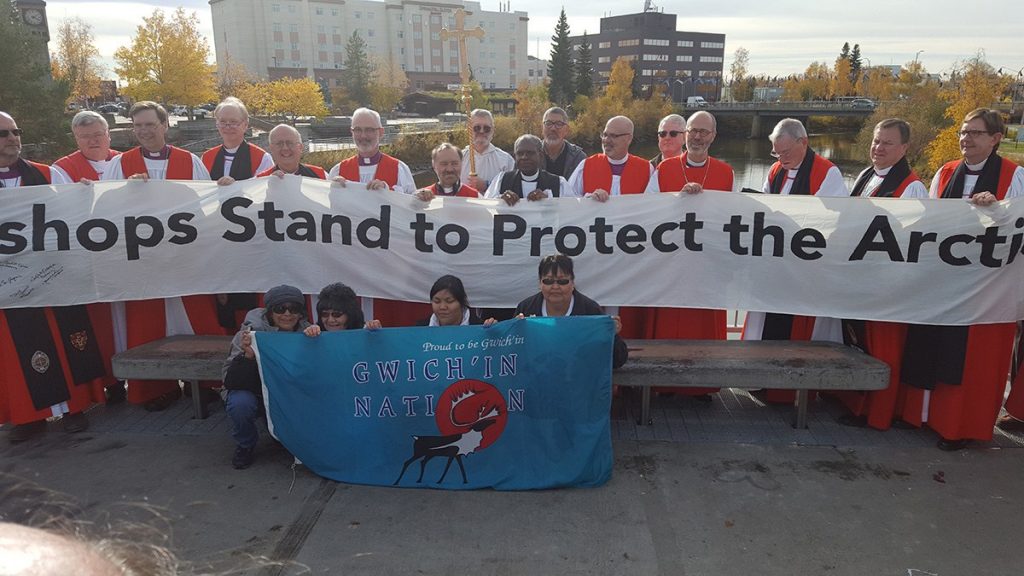The Episcopal Church House of Bishops has finished its nearly weeklong fall trip to Alaska, a trip marked with conversations, explorations of the land and its challenges, prayer, blessings and the writing of a letter to The Episcopal Church will be released once it has been translated into Spanish.
From the Episcopal News Service:
The letter was the capstone of the bishops’ six-day fall meeting, held in Fairbanks but incorporating a weekend of travel far beyond this small city. Across Alaska’s vast Interior, groups of bishops visited Native communities that are struggling to preserve the subsistence way of life they have followed for thousands of years.
The threats to that way of life are many, though Native residents specifically voiced concerns to the bishops about climate change and the impact of the resource-extraction industry.
“The bishops of the Episcopal Church came to Alaska to listen to the Earth and its peoples as an act of prayer, solidarity and witness,” the message. Alluding to Ephesians 2:19, the message continues, “The residents of Interior Alaska whom we met not strangers; they are members of the same household of faith.”
The bishops did a lot of listening during their time in Alaska:
“What does listening the Earth and its people mean?” the bishops ask in their letter to the church. “For us bishops, it meant getting out and walking the land, standing beside the rivers, sitting beside people whose livelihood depends on that land. We had to slow down and live at the pace of the stories we heard. We had to trust that listening is prayer.”
What they heard were stories of longer summers and shorter winters, of melting permafrost affecting the rivers they fish, of the difficulty of getting food to supplement what they harvest in the wild, and of their concern for the future of the caribou birthing grounds.
The House of Bishops agenda included other conversations during the week, including a response to the recent hurricanes and wildfires, offering support for dioceses in the Gulf Coast and Caribbean Islands and the western U.S.
That resolution, too, cited the environmental factors behind such devastation and “the relationship between human consumption patterns and global climate change.”
“We acknowledge that we all have a role to play in reducing the impact of our actions that result in the destruction of islands and coastal areas due to more frequent and severe storms,” the bishops said. “We pledge to take such appropriate actions in our dioceses to educate ourselves and our people about climate change, and to advocate policies and actions to reduce the harmful environmental impacts that have been a factor in the recent storms.”
Meetings also included a report on the continued discussion of the Episcopal Church entering into full communion with the United Methodist Church:
Bishop Frank Brookhart of the Episcopal Diocese of Montana said the Methodists were expected to vote in 2020, followed by a vote of the Episcopal Church’s General Convention in 2021. Until then, he encouraged Episcopal bishops and congregations to begin developing relationships with their Methodist counterparts.
The Bishops issued A Word to the Church following their meeting.
What we bishops saw and heard in Alaska is dramatic, but it is not unique. Stories like these can be heard in each of the nations where The Episcopal Church is present. They can be heard in our own communities. We invite you to join us, your bishops, and those people already engaged in this work, in taking time to listen to people in your dioceses and neighborhoods. Look for the connections among race, violence of every kind, economic disparity, and the environment. Then, after reflecting in prayer and engaging with scripture, partner with people in common commitment to the healing of God’s world.
Read it all here. In English or Spanish

